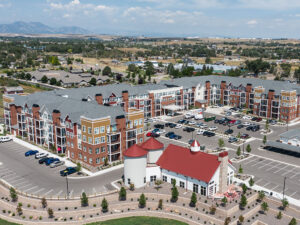The cost of living in Denver is a top concern for families, professionals, and retirees moving to Denver in 2025. As the Mile High City continues to attract new residents with its thriving economy, mountain views, and active lifestyle, understanding Denver’s affordability is essential. With prices shifting annually, getting up-to-date on the cost of living in Denver will help you plan your budget and make informed relocation decisions.
How the Cost of Living in Denver Compares Nationally
According to the latest data from Salary.com and the Council for Community and Economic Research, the cost of living in Denver is roughly 12% above the national average in 2025. Expenses are higher in key categories such as housing, groceries, and healthcare. However, Colorado’s strong employment opportunities in tech, aerospace, and healthcare often offset these higher living costs for many individuals relocating to Denver.
Housing: The Largest Expense for Newcomers in Denver
When it comes to the cost of living in Denver, housing is the biggest expense. As of 2025, the median home price is $580,000, reflecting a 5% year-over-year increase. The average rent for a one-bedroom apartment in Denver is about $2,100, while two-bedroom units can exceed $2,800. Suburbs like Lakewood, Thornton, and Littleton may offer more affordable options, but they still sit above the national average.
Inventory remains tight, and bidding wars are common in popular neighborhoods like Sloan’s Lake, Washington Park, and RiNo. For homebuyers, it’s critical to budget for mortgage rates, property taxes, insurance, and potential HOA fees.
Transportation and Commuting Costs in Denver 2025
Transportation is another key factor in the cost of living in Denver. Gas prices remain high, averaging $4.00 per gallon. Monthly RTD passes for bus and light rail service cost about $114. Many residents opt for neighborhoods with public transportation access to avoid high parking fees and long commutes.
Denver’s expanding bike lanes and walkable communities are also helping residents cut down on transportation costs while supporting a more eco-friendly lifestyle.
Food Costs: Groceries and Dining in Denver
Grocery costs are up in 2025, running 5%–8% higher than the national average. A family of four typically spends $175–$225 per week. Dining out can add up quickly, with casual meals for two averaging $60 and upscale dinners often topping $150.
Organic and specialty food options are widely available at Denver’s farmers markets and local shops, though they come at a premium. For budget-conscious newcomers, chain grocery stores and warehouse clubs can help lower food bills.
Healthcare Costs in Denver
Healthcare expenses contribute significantly to the cost of living in Denver. Expect to pay 10%–15% more than the national average. A standard doctor visit runs $150–$200 without insurance. Most large employers offer comprehensive health insurance plans, which help reduce out-of-pocket medical costs for newcomers moving to Denver.
Monthly Utility Costs in Denver
Utilities for a two-bedroom apartment average $200–$250 monthly and include water, heating, electricity, and trash service. Internet service costs $65–$85 per month, depending on the provider and speed. Given the influx of residents, some areas experience slower service rollouts, so checking availability is wise before signing a lease or closing on a home.
Childcare and Education Costs in Denver
If you’re moving to Denver with children, expect to pay $1,400–$1,900 per month for full-time daycare. Private school tuition ranges from $12,000 to $25,000 annually, though many families take advantage of Denver’s highly rated public schools.
For newcomers seeking advanced education, Denver is home to a number of respected colleges and universities, including the University of Denver and Metropolitan State University.
Is the Cost of Living in Denver Worth It?
Despite the higher price tags, the lifestyle offered in Denver continues to attract thousands of newcomers each year. From weekend hikes in the Rockies to professional sports and award-winning dining, Denver provides a high quality of life that many find worth the cost.
For anyone relocating to Denver, understanding the cost of living in Denver—and planning accordingly—can turn a stressful move into a smooth transition. Whether renting in Capitol Hill or purchasing a new home in Cherry Creek, having a detailed budget can help you thrive in your new city.
Request your free Denver Relocation Guide here




